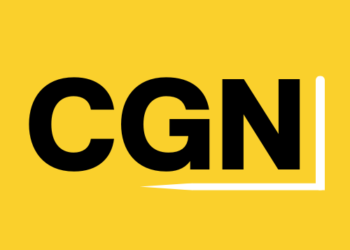The High-Stakes Game of 10-Minute Deliveries and Drone Innovations
In the fast-paced world of quick commerce, companies are racing against time and each other to deliver goods faster than ever. The allure of 10-minute delivery promises convenience for consumers but is proving costly for companies and investors. Meanwhile, the drone industry is poised for significant growth, promising to revolutionize logistics and other sectors.
The Quick Commerce Conundrum
The quick commerce sector, led by giants like Zomato and Swiggy, has become a battlefield where billions are being burned. The promise of delivering groceries and essentials in under 10 minutes has captivated urban consumers. However, this rapid delivery model requires substantial investments in logistics, technology, and marketing, leading to financial strains.
-
Market Dynamics: Zomato and Swiggy have been aggressively expanding their dark store networks to meet demand. For instance, Zomato’s Blinkit added 216 new locations, while Swiggy opened 96 new sites in a single quarter. This expansion is crucial to maintaining their competitive edge but comes at a significant cost.
-
Financial Impact: The financial markets have reacted sharply to these developments. Since the beginning of 2025, Swiggy’s shares have plummeted by 37%, and Zomato’s stock has slumped nearly 22%. This translates to a combined loss of approximately $12 billion in market valuation.
- Competitive Pressure: New entrants like Zepto, backed by over a billion dollars in funding, and established players like Flipkart and Amazon, are intensifying the competition. This pressure forces companies to spend heavily on marketing and discounts to retain and attract customers.
The Rise of Drones in Delivery
While quick commerce grapples with financial challenges, the drone industry is on the cusp of a breakthrough. Drones are no longer confined to military use; they are becoming integral to civilian applications such as land mapping, delivery, and security.
-
Industry Insights: Ankit Mehta, CEO of Mumbai-based ideaForge, emphasizes that drone technology is ready for large-scale implementation. He notes, "The time is ripe for drones to play a big role in surveillance, delivery, governance, and security infrastructure."
-
Technological Advancements: ideaForge has developed a platform called Flight Cloud, which allows seamless data upload and processing for drone mapping. This innovation highlights the potential of drones in transforming logistics and other industries.
- Collaborative Ecosystem: Mehta believes in creating a platform where multiple analytics providers can offer their services, ensuring a comprehensive solution for end customers. This approach fosters innovation and collaboration within the drone ecosystem.
Balancing Speed and Sustainability
The quick commerce model, while appealing, raises questions about sustainability. Can companies maintain rapid delivery speeds without compromising financial stability? The answer lies in balancing growth with operational efficiency.
-
Consumer Expectations: As a consumer, you expect fast deliveries without considering the backend complexities. Companies must manage these expectations while ensuring profitability.
- Operational Challenges: Expanding dark store networks and investing in technology are essential but costly. Companies need to optimize their supply chains and explore sustainable practices to reduce costs.
The Future of Delivery: A Hybrid Approach?
The future of delivery may involve a hybrid approach, combining quick commerce with drone technology. Imagine a world where drones handle last-mile deliveries, reducing the burden on traditional logistics networks.
-
Potential Benefits: Drones can navigate traffic congestion, reduce delivery times, and lower carbon emissions. This innovation aligns with the growing demand for environmentally friendly solutions.
- Regulatory Hurdles: However, widespread drone adoption faces regulatory challenges. Governments must establish clear guidelines to ensure safety and privacy while encouraging innovation.
Conclusion
The quick commerce and drone industries are at a pivotal juncture. Companies must navigate financial pressures while embracing technological advancements. As a consumer, you stand to benefit from faster, more efficient deliveries. However, the journey to achieving this balance will require strategic investments, regulatory support, and a commitment to sustainability.
Questions to Consider: How do you perceive the impact of rapid delivery on your lifestyle? Are you willing to pay a premium for faster service, or do you prioritize sustainability? As drone technology evolves, how do you envision its role in daily life?
For more insights into the evolving landscape of quick commerce and drone technology, explore Zomato and ideaForge.


















